Top 5 HVAC Emergencies: How To Identify & Prevent Them In Your Home
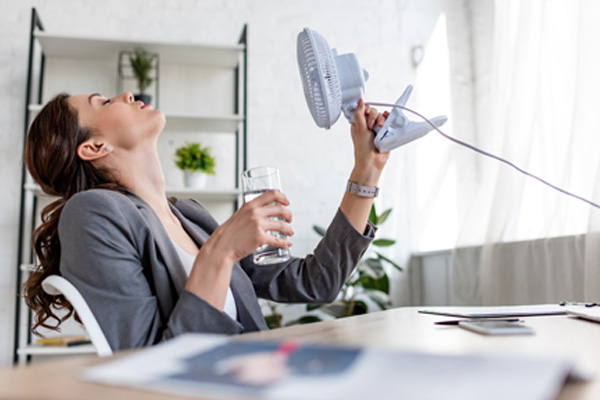
Heating, ventilation, and air conditioning systems provide your home with cold or warm air. This way, you and your family’s home comfort and safety are maintained throughout the year. An HVAC unit is a complex system that consists of various parts for it to work effectively. Unfortunately, like any other machine, it can experience problems as time passes. Five of the most common HVAC emergencies your equipment might experience include refrigerant leaks, clogged lines, electrical issues, negative air pressure, and gas leaks.
When these emergencies occur, your system stops working correctly. For example, your home or office might end up scorching hot or extremely cold. In this article, we will talk about these different HVAC emergencies so you can identify them and prevent the problem from getting worse.
Refrigerant Leak
Contents
A refrigerant is a substance used in the refrigeration cycle to cool the air that your air conditioner circulates throughout your home. However, refrigerant leaks can happen due to vibrations, weakened joints, and problematic connections in the refrigerant lines. When this happens, you will notice that your system is not cooling your home as it should. Instead, it will release warm air instead of the normal temperature.
There are a few signs to look out for when you suspect that your unit’s refrigerant is leaking. Aside from the register not blowing cold air, you will hear a hissing sound from your indoor unit. This sound comes from the holes and cracks in the coil. If you also notice a sudden increase in your electricity bill, then you might be dealing with a refrigerant leak. Another sign is frozen coils. The refrigerant does not circulate properly through the coils, and the condensation will cause the coil to freeze.
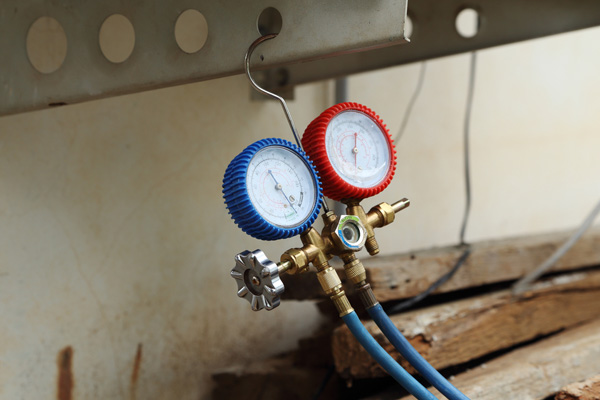
Problems With A Clogged Line
The drain line is where the condensation from the evaporator passes through and releases in the drain pan. Over time, muck and algae can clog it up, especially if the drain pan is left full of water. This clog can escalate and lead to water damage to your system. A few signs that you have a clogged line include increased humidity in your home. You also might notice rust or mold in your unit.
Negative Air Pressure
Negative air pressure means that your HVAC equipment is pulling air into your home from the outside. It pulls through the:
- attic
- basement
- crawlspace
- the gaps around windows and doors
- light fixtures
- electrical outlets
Your heating system, such as a furnace and a fireplace, can also draw air up and force it out, contributing to negative air pressure. In fact, it’s the exhaust system inside the HVAC that creates much of the negative air pressure.
Some of the signs that your home is experiencing negative air pressure include unusually cold or hot rooms, doors opening and closing by themselves, and random air drafts throughout your house. Another sign is odd and whistling noises. All these signs might make you think that a ghost is haunting your house, but you should check your HVAC system first before jumping to conclusions.
The best way to combat negative air pressure is to bring in more air than your home exhausts. This can be achieved by incorporating a duct to the return ducting of the HVAC system. This way, air can be brought in from the outside throughout the day. Another method of drawing more air in than what is exhausted is to adjust the heat recovery ventilator/energy recovery ventilator (HRV/ERV). Talk to a licensed HVAC contractor, such as Point Bay Fuel.
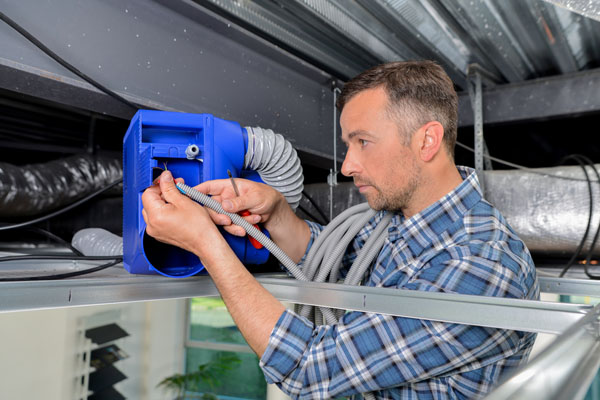
Gas Leak
A gas leak in your home means danger is imminent. It can result in an explosion if not detected early. A few signs of a gas leak are the smell of sulfur or rotten eggs around your home, hissing or whistling sound, and dead houseplants. Make sure that you get your system checked regularly by a professional to prevent any leaks in the future.
Electrical Issues
Electrical problems could indicate that there is an interruption in the electrical system. Check your breaker first and make sure that the circuit breaker is “on.” If you have a fuse box, you may have blown a fuse. Replace the fuse as necessary. Also, you can always check your emergency shut-off switch. However, if there is still a problem, it is time to call in a professional. There may be an issue with an electrical contactor. An electrical problem could leave you without heat. If you live in a cold climate or it is the middle of winter, this could not only be inconvenient, but it could also be life-threatening.
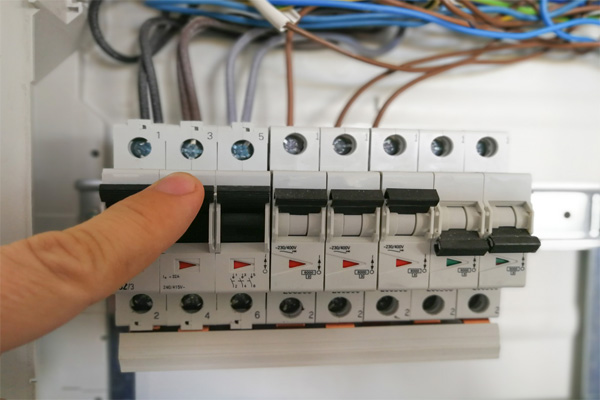
Preventing HVAC Problems
There are a few things you can do to ensure that your HVAC system is in tiptop shape. For instance, make sure that the duct is cleaned regularly. A thorough cleaning of the coils, air handler, fans, grilles, motors, and housing of the HVAC system should also be done.
Change the HVAC air filters in the HVAC system as often as recommended by the system manufacturer. The filters are there to keep dust, dander, and other pollutants from circulating within your home. The filter also protects the unit from damage, so it is vital that they are not blocked. You should also keep the evaporator coils free of dust and other debris. You can use a spray bottle filled with water and a mild detergent. Allow the solution to sit for a minute or two and then wipe away all the accumulated matter. However, you must call an HVAC contractor to inspect your unit and clean it professionally.
Check your AC for signs of water damage or clogged lines. If you see any of the tale-tell signs like ice buildup and refrigerant lines hissing, call a professional to correct the problem. To keep your air conditioning and heating unit running properly, you should schedule an annual maintenance check by a certified professional.
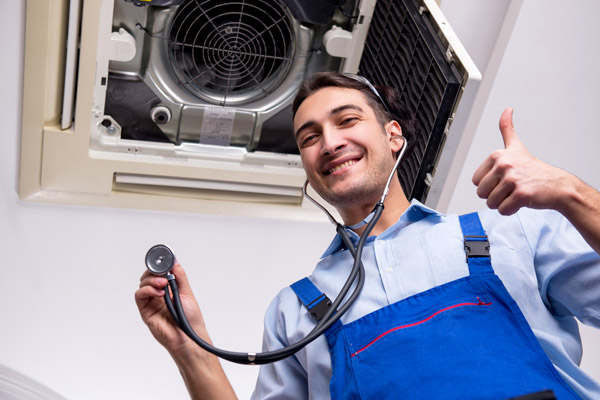
Call Point Bay Fuel For Your Home HVAC Requirements

Point Bay Fuel offers superior heating and cooling services in the area. We hire the best NATE certified technicians who can provide you with excellent HVAC tune-ups, repairs, installations, and replacements. Each of our techs has the knowledge and experience to service your HVAC system correctly.
Point Bay Fuel guarantees the most competitive heating and cooling service costs in the area. If you happen to need an HVAC replacement system, we can recommend the best one for your home while staying within your budget. As always, all of our services prioritize energy efficiency, comfort, indoor air quality, and more. To schedule an appointment, give Point Bay Fuel a call today for a free, in-home estimate.
Contact us now by calling (732) 349-5059 to speak to one of our home comfort specialists!
